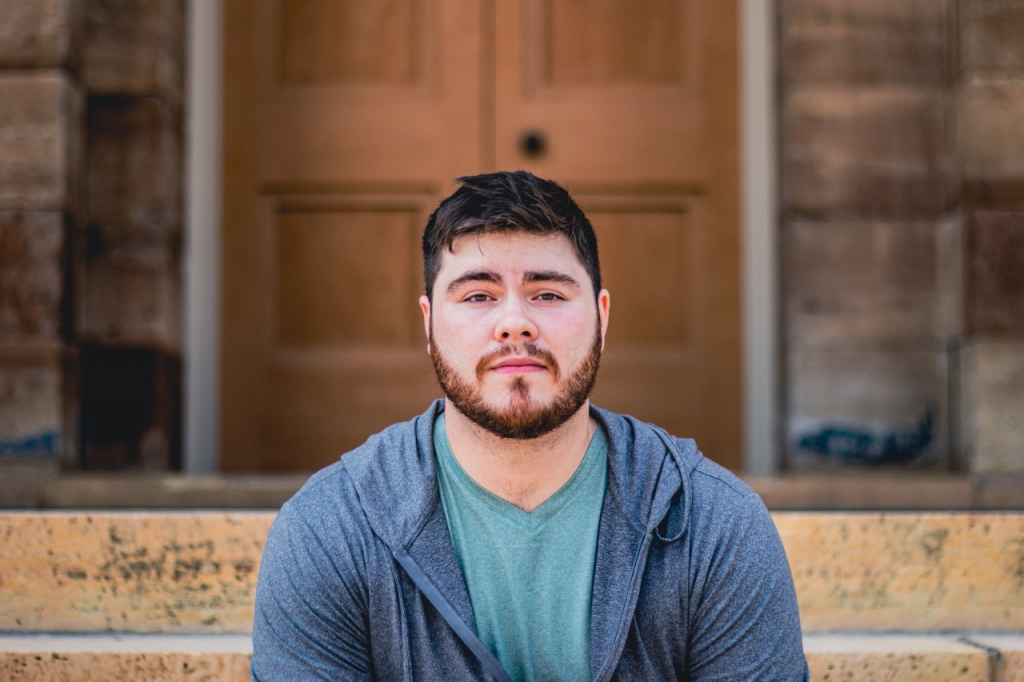Illinois State University School of Theatre and Dance presents Good Kids by Naomi Iizuka. Performances are October 22, 23, 26-30 at 7:30 p.m. and October 24 at 2 p.m. in the Center for the Performing Arts Theatre.
Loosely based on the Steubenville High School rape case, Good Kids is set at a Midwestern high school, in a world of smartphones and social media, and tells the story of Chloe, a high school girl who is led away from a party by a group of football players and sexually assaulted while unconscious. The repercussions and rumors that spread among her peers comprise most of the play as it explores the public aftermath of a sexual encounter gone wrong. Good Kids also examines the role social media plays in modern “he said, she said” situations. Through the use of theatrical intimacy training and open communication, the company of Good Kids is prepared to tell this story that addresses a number of prevalent social issues.
“There are many things you have to look out for and keep in mind when working on a play like this to make sure everyone feels safe at all times,” reveals M.F.A. directing candidate and director María Amenábar Farias. “You never know what anyone has been through in their life, and while I don’t ask anyone to disclose or bring any real experience with the subject matter into the room, it’s good to establish different tools and rehearsal practices that will keep everyone physically and emotionally safe at all times, regardless of what we are working on that day.”
Those tools and rehearsal practices include intimacy training sessions. Part of intimacy training includes learning strategies for handling physically and emotionally challenging material. With the help of School of Theatre and Dance Assistant Professor John Tovar, director Amenábar Farias employed techniques she learned through Theatrical Intimacy Education workshops throughout the rehearsal process in order to establish the language used in the rehearsal room and as a way for actors to check physical boundaries with each other every day.
“Overall, I think the rehearsal process has been a success,” Amenábar Farias adds, “but it is important to emphasize the importance of doing intimacy training and having open communication when exploring a challenging play like this.”
Junior acting major Sage Brown, who plays football player Connor, feels that Good Kids is not just a story; it’s a catalyst for information that can be used as an educational tool. “This play is certainly hard to put on,” Brown shares. “Sometimes you have to go to a dark place to convey some truly heinous acts, but the story needs to be told. If it can help even one person in whatever way it may, it will have been completely worth it.”
Brown is grateful to work with a director who “has pushed (the cast) in the exact direction we need to go to help those specific people that may come see the show and I truly believe it will.”
Director María Amenábar Farias hopes this production will bring awareness to the realities of sexual assault in our modern society. “I hope it destroys any misconceptions people might have about what a rapist looks like. And I hope it starts a conversation. Like the playwright, Naomi Iizuka, said ‘You don’t solve a problem like sexual assault with anything other than a deep shift in attitude, and a deep shift in attitude happens conversation by conversation, in dorm rooms, parties and rehearsal halls.’ I hope our production can start that shift in some people. Finally, I hope it brings hope and courage to anyone who has faced a similar circumstance to the one depicted in the play. We will provide resources in our performance too to make sure that anyone who needs to reach out to licensed professionals can do so safely.”
Those resources can be found on the Good Kids dramaturgy website, created by Musical Theatre/Theatre Education major and dramaturg Lorelei Wernecke.
Tickets for Good Kids can be purchased in person at the Center for the Performing Arts Box Office Monday-Friday, 11 a.m.-5 p.m. or online through Ticketmaster. Masks will be required for the duration of the performance. This production includes strong language and descriptions of sexual assault.



